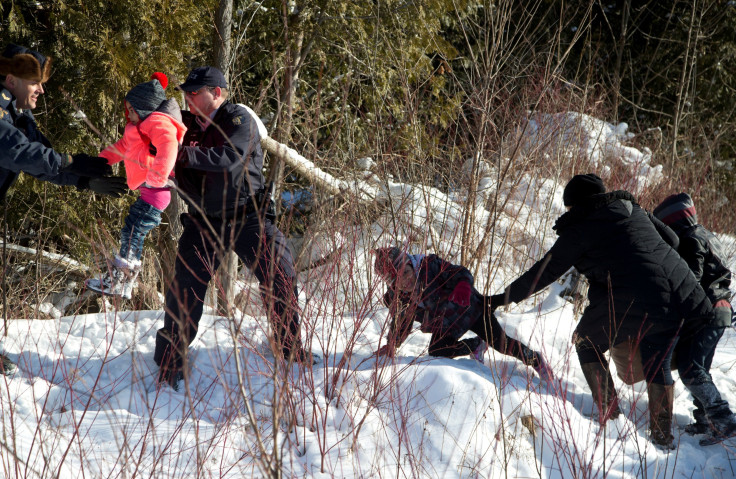Traveling To US Becomes Easy? More Canadians Cross US Land Border, Reports

Fewer Canadians are being turned away at U.S. land crossings in recent months. This is in contrast to increasing concerns among Canadian over President Donald Trump's strict immigration policies that they thought would make it difficult to enter the U.S.
The number of Canadians turned back at land crossings has dropped 8.5 percent between October and February, compared with the same five-month period in 2016, according to U.S. government statistics, Canadian media reports said. In absolute numbers, Canadians traveling to the U.S. who were denied entry at the border has dropped to 6,875 out of 12,991,027, a refusal rate of 0.05 per cent. Between October 2015 and February 2016, 7,619 out of 13,173,100 Canadian travelers were denied entry to the U.S., a refusal rate of 0.06 per cent, according to reports.
Read: Canada To Continue To Accept Refugees From US, Despite Opposition From Conservative Lawmakers
The figures contradict a popular notion in Canada that its citizens were being denied entry into the U.S., likely a result of Trump's immigration rhetoric.
However, Canadian immigration and civil liberties advocates have said the figures do not reflect the whole story. Immigration lawyer Lorne Waldman said he was receiving more calls than before from people who were planning trips to the U.S., saying they were worried about their paperwork. The decreased rate of refusal could be attributed to people being better prepared now than they used to be, for crossing the border, and hence fewer people were being turned away, he said, according to CBC News.
"People in Canada used to take it for granted that they could just go to the border... but that's no longer the case," Waldman said. "The heightened awareness because of all the publicity around immigration has led people to be much more cautious about crossing the border," he added.
© Copyright IBTimes 2024. All rights reserved.












